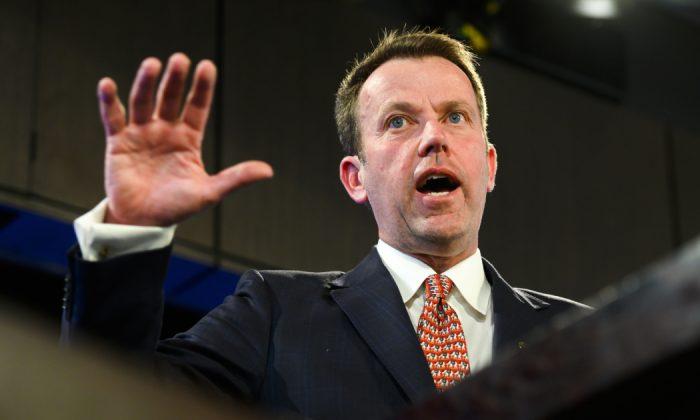Australia announced on Aug. 28 that it has formed a task force to crack down on attempts by foreign governments to meddle in Australian universities.
The move comes as concerns grow over Chinese influence at Australia’s universities, where Chinese students are by far the largest group of foreign students. Pro-Beijing student demonstrators have recently clashed with Hong Kong democracy advocates on Australian campuses.
Australia has also raised concerns about the influence of Beijing-funded Confucius Institutes at Australian universities.
Education Minister Dan Tehan said the task force will comprise half university staff and half government agency officials.
“Our government is taking action to provide clarity at the intersection of national security, research, collaboration, and a university’s autonomy,” Tehan said in a statement.
“Universities also understand the risk to their operations and to the national interest from cyberattacks and foreign interference and we are working constructively to address it,” he added.
The task force includes a cybersecurity working group that would better protect university networks against unauthorized access and damage.
The Australian Cyber Security Center, an intergovernmental agency, has said Australian universities are increasingly attractive targets for cyberattacks because of their research across a range of fields and the intellectual property that the research generated.
The new task force will also include a research and intellectual property working group to protect academic freedom, intellectual property and safeguard universities against deception and undue influence.
A foreign collaboration working group would ensure collaborations with foreign entities would be transparent and avoid harming Australia’s interests.
A culture and communication working group would foster a positive security culture.
The move comes a year after the government angered China by banning covert foreign interference in Australian politics. Foreign political donations have also been banned.
Organizations and individuals who are operating in Australia on behalf of a foreign government or a foreign political organization have had to register under the Foreign Influence Transparency Scheme since December.
Attorney-General Christian Porter last month urged all universities to ensure international partnerships, including with Confucius Institutes, complied with Australian law and that the partners potentially needed to register.
At that point, none of the Confucius Institutes that had partnered with 13 Australian universities had registered. By contrast, the U.S. State Department-funded U.S. Studies Center at Sydney University was registered.
Australia’s most populous state, New South Wales, last week ended its China-funded Confucius Classroom language and culture program that had been offered in 13 public schools. It has been replaced by a state government-funded program.
The state education department said a review found no evidence of “actual political influence being exercised,” but concluded there were “a number of specific factors that could give rise to the perception that the Confucius Institute is or could be facilitating inappropriate foreign influence in the department.”
The China’s foreign ministry accused New South Wales of politicizing a “normal exchange program.”





